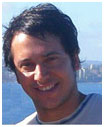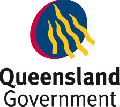CRC30032
Development of a Smart Spore Trap
| Publication Type | Conference Paper | |
| Year of Publication | 2011 | |
| Authors | Zeller, L.; Kamel, P. | |
| Conference Name | Science Exchange 2011 | |
| Conference Start Date | 09/02/2011 | |
| Conference Location | Barossa Valley |
Purpose for travel:
Attend Personal Digital Assistant (PDA) workshop in Perth to contribute to the workshop outcomes, develop networks and discussed potential future project collaborations. In addition I presented examples of PDA's used for agricultural research within DPI&F and provide input and technical advice to advance the use of PDAs in the CRC.
TRAVEL DETAILS
ZELLERL
When: August 2008
Location: Perth, Western Australia
Summary:
Les Zeller from Queensland Department of Primary Industries and Fisheries recently attended a PDA workshop in Perth to provide input and technical advice to advance the use of PDAs in the CRC.
LOCATION
This project was a scoping study to determine the potential of using an unmanned aerial vehicle, fitted with a spore trap, to detect and monitor spores of plant pathogens. The aim was to develop a sampling system that would have the ability to spatially monitor fungal spores, and protocols to interpret their spatial distribution. This tool will greatly enhance the ability to detect new incursions of fungal pathogens and to enable more accurate delimiting of distribution. The technology will allow for earlier detection of harmful plant pest or disease incursions in difficult areas and provide efficient and effective airborne surveillance.
The project was led by Rodney Walker, with Felipe Gonzalez (Queensland University of Technology (QUT)/Australian Research Centre for Aerospace Automation (ARCAA)) as the Principal Investigator, Les Zeller (Department of Employment, Economic Development and Innovation (DEEDI)) as advisor and engineer and Pritesh Narayan (QUT/ARCAA) as research fellow.
Research outcomes:
- an advanced airborne biosensor with capabilities to geo-locate spores was developed and tested
- seven publications, and
- four flight tests.
Research implications:
This tool will greatly enhance the ability to detect new incursions of fungal pathogens and to enable more accurate delimiting of distribution. The technology will allow for earlier detection of harmful plant pest or disease incursions in difficult areas and provide efficient and effective airborne surveillance.
Acknowledgements:
We would like to thank and acknowledge the support of DEEDI, ARCAA and the QUT throughout this research project.
We would also like to acknowledge the additional contributions of Richard Glassock (UAS Launch Controller), Scott Mcnamara (UAS Flight Controller) who assisted in the integration and UAS flight testing components, Francesco Tamagnone Cosmelli (Exchange Post Graduate Researcher – Italy) who assisted in the wind tunnel and UAS flight testing components.
A/Professor Zoran Ristovski also collaborated with the research project and provided access to aerosol equipment such as the particle sizer and atomiser and also provided valuable insight as an aerosols expert.
PROJECT LEADER

Felipe Gonzalez
Project Leader CRC30032: Flying Spore Traps
felipe.gonzalez@qut.edu.au
Phone: 07 31381363
Read More
PROJECT DETAILS
Complete
Term
July 2007 - September 2009
Budget
$503,692 (cash and in-kind support)





